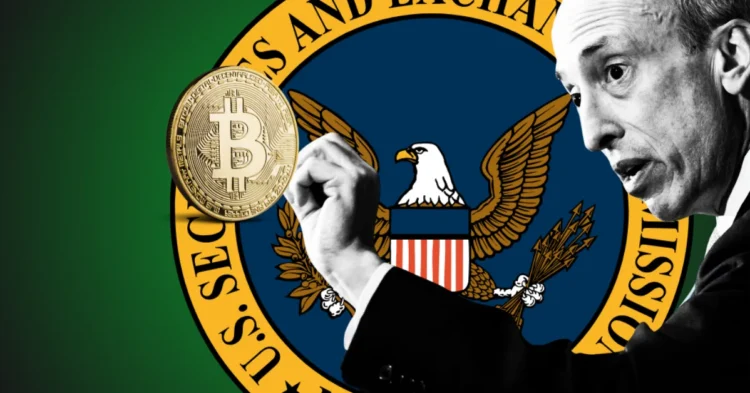As the SEC undergoes a significant leadership change with Paul Atkins poised to succeed Gary Gensler, the agency finds itself at a crucial crossroads. Legal scholar JW Verret has issued a stark warning that the SEC could face dire consequences if it fails to withdraw from its contentious case against Ripple. This legal battle has become a focal point in the wider debate about the SEC’s approach to cryptocurrency regulation.
Federal Judiciary Challenges the SEC
When the SEC initiated its campaign against the cryptocurrency industry, it likely did not anticipate the formidable resistance it would encounter from the federal judiciary. This confrontation has highlighted the growing tension between the SEC’s interpretation of securities laws and the perspectives of federal judges. The situation has become so strained that there is a real possibility of the Supreme Court becoming involved in this legal saga.
The Ripple Lawsuit: A Turning Point
The conflict traces back to the SEC’s 2020 lawsuit against Ripple Labs, where it alleged that Ripple’s XRP token was an unregistered security. In a landmark decision, Judge Analisa Torres ruled that XRP sales conducted on public exchanges did not constitute securities transactions, a verdict that the SEC has since appealed. This ruling has set a precedent that could reshape the landscape of cryptocurrency regulation.
Judge Jed Rakoff’s Interpretation Could Have Serious Consequences
In a related case, Judge Jed Rakoff offered a broader interpretation in the SEC’s proceedings against Terraform Labs. He suggested that crypto tokens might be classified as securities irrespective of their sale method. This divergence in judicial interpretation has created a climate of legal uncertainty, potentially necessitating intervention by the Supreme Court.
Implications for the Crypto Industry
Judge Rakoff’s expansive view of the Howey test could have significant repercussions for the cryptocurrency sector. His interpretation implies that even transactions involving Luna tokens by individuals unaffiliated with Terraform Labs could be deemed securities. This broad perspective raises alarms for the industry, as it could dramatically extend the SEC’s regulatory reach.
Lack of Boundaries Raises Concerns
The potential consequences of this legal reasoning are vast. If pursued further, even Bitcoin could fall under the classification of a security due to its developers’ involvement in maintaining the network. Such a development would signify a substantial enlargement of the SEC’s jurisdiction, potentially impacting a diverse range of assets, from precious metals to airline rewards programs.
Legal and Market Implications
This ambiguity around regulatory boundaries is a source of concern for both legal experts and market participants. The ongoing appeal of the Ripple case by the SEC could catalyze complications, possibly prompting the Supreme Court to intervene. This case might ultimately serve as a mechanism to curtail the SEC’s authority, ensuring that significant decisions are made with explicit legislative backing.
SEC’s Approach Could Backfire
In addition to its battle with Ripple, the SEC faces challenges from major players like Coinbase. The courts have questioned the SEC’s reluctance to establish clear regulatory frameworks for cryptocurrency trading, which could also draw the Supreme Court’s attention. By applying the Howey test too broadly against legitimate crypto entities such as Ripple, Coinbase, Kraken, and Uniswap without clear guidelines, the SEC risks undermining this critical legal instrument through potential Supreme Court limitations.
Long-term Consequences for the SEC
The SEC’s assertive stance towards cryptocurrency regulation could ultimately backfire, threatening its own regulatory authority. By persisting in its appeal in the Ripple case and failing to provide clear regulatory guidance, the SEC risks provoking the Supreme Court to restrict its powers. Such a move could weaken the SEC’s ability to govern the crypto market effectively and could hinder its strategic objectives, particularly in the aftermath of the 2024 elections.
In conclusion, the evolving dynamics of the SEC’s legal challenges underscore the need for a balanced regulatory approach that accommodates the unique aspects of the cryptocurrency industry while ensuring compliance and investor protection.











